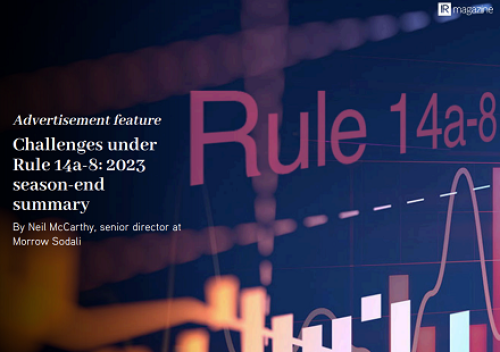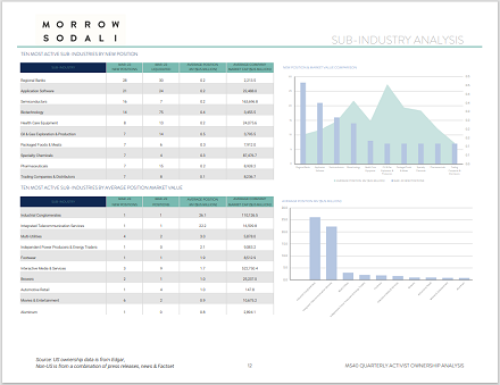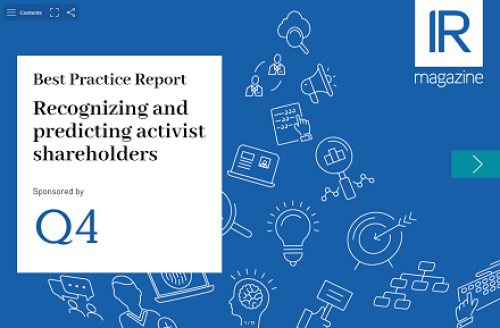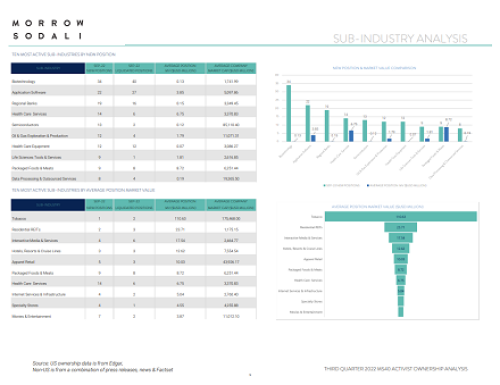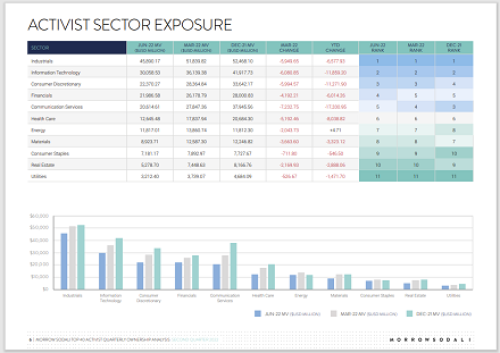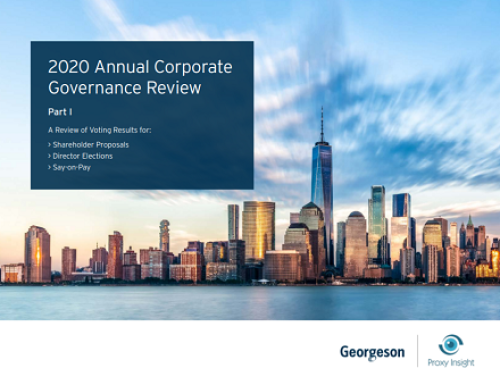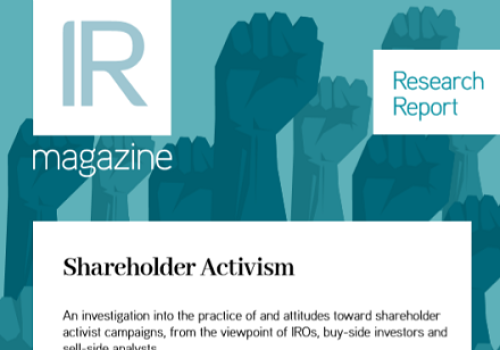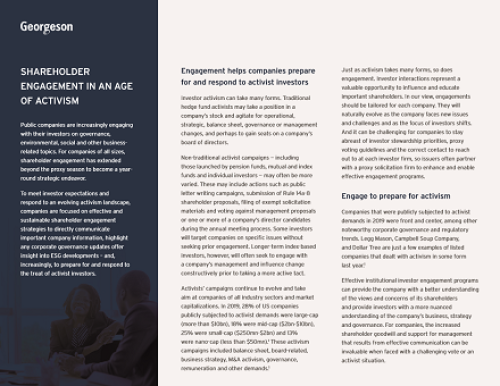Almost two thirds of investors say they are open to talking to activist investors about a company they have a position in, according to recent research from IR Magazine.
While many companies continue to experience volatile share prices and balance sheet concerns – with a significant increase in the number of companies adopting poison pills this year – investors are more likely to support an activist campaign now than they were three years ago.
This is according to IR Magazine’s Shareholder Activism research report, which was released last month. Almost two fifths (39 percent) of investor respondents say they are more likely to support an activist campaign than they were three years ago, with almost half of European and Asian respondents agreeing with this statement.
But the number of investors siding with activist investors during the last three years is relatively low. Just 22 percent of buy-side respondents have been involved in an activist campaign since 2017, with 5 percent leading the campaign and a further 17 percent supporting or partnering with an activist investor.
Investors in Europe were those most likely to support an activist campaign during the last three years, according to the study, while Asia-based investors were most likely to lead a campaign.
When asked why they’re likely to support an activist campaign, buy-side respondents firmly identify the investment thesis as the first pick. But investors are also interested in the activist investors’ track record: activists’ conduct during prior campaigns and the quality of board director nominees during prior campaigns are both deemed to be important by a significant number of respondents.
Many buy-siders agree that open communication is crucial for companies’ responses to an activist campaign. ‘[The] company’s response determines only whether we are going to war with it or working together,’ one buy-sider says.
‘If a company is responding and taking appropriate action, there’s no need for the cost of an activist campaign/proxy battle,’ says another respondent.
Activist campaigns can affect sell-side ratings
The study also surveyed sell-side respondents about whether activist campaigns change their perspective on the companies they cover.
Almost half (44 percent) of sell-side analysts say a shareholder activist campaign would affect their buy or sell rating of a company. In Asia, three quarters of respondents say an activist campaign would affect their rating, while in North America almost two thirds say a campaign has no effect on their rating of a company.
‘If we assess that the [campaign] has the potential to be brand-destroying, we take notice,’ one sell-side respondent says. On the other hand, another respondent notes: ‘Once an activist campaign starts, a stock generally has a one-time move, and then not much else happens until the campaign is over. So it’s a fait accompli, and I don’t usually change my rating.’
Sell-siders expect companies to be proactive in their defense against an activist campaign, the study reveals. More than seven in 10 sell-side analysts expect companies to schedule meetings with their investor, while around half expect companies to update their investor-facing materials and brief against the activist campaign.
Analysts in Asia are much more likely to expect a company to host a conference call than their counterparts in North America and Europe.
Sell-side respondents acknowledge that activist investors are more effective than IR teams at building a social media campaign around their thesis. But these respondents also firmly state that activist investors have well-established track records and it’s important to research the firm thoroughly when considering their campaign.
The IR Magazine Shareholder Activism report is based on survey work conducted in Q4 2019. The results are based on responses from 384 IROs and 218 investment community respondents. The report also covers how many companies have been targeted by activist campaigns during the last three years as well as companies’ activism preparedness.
Click here to read the full report.

